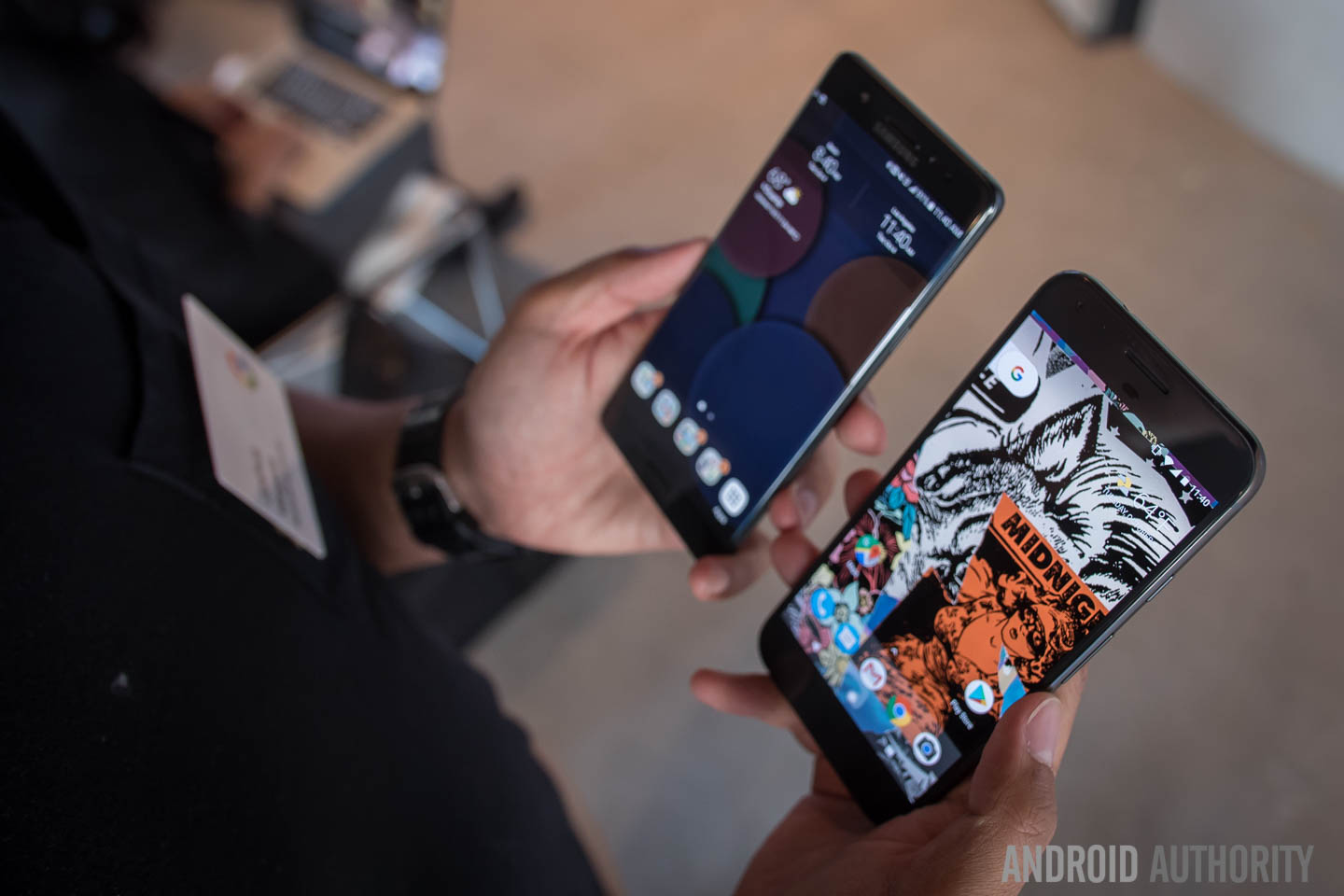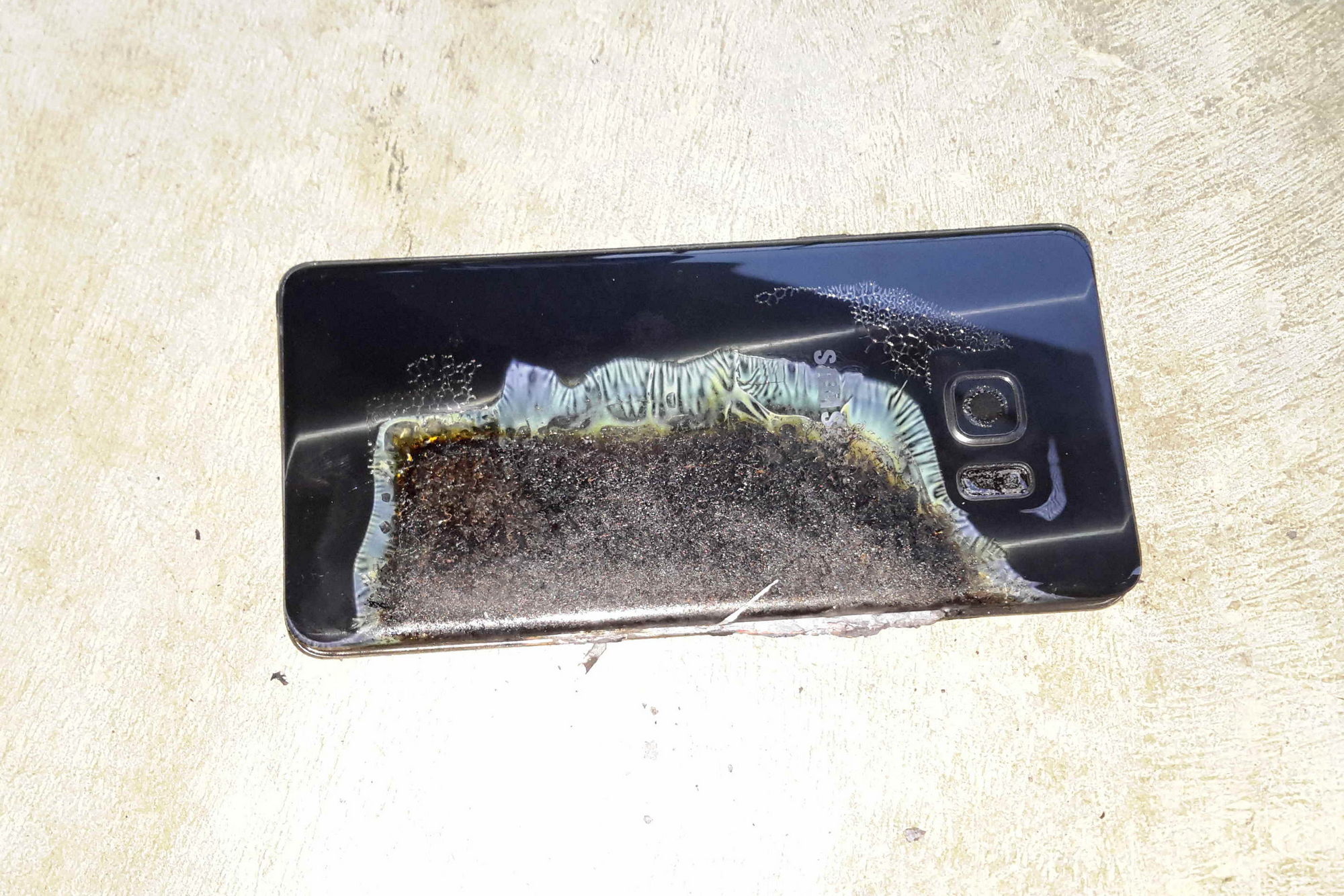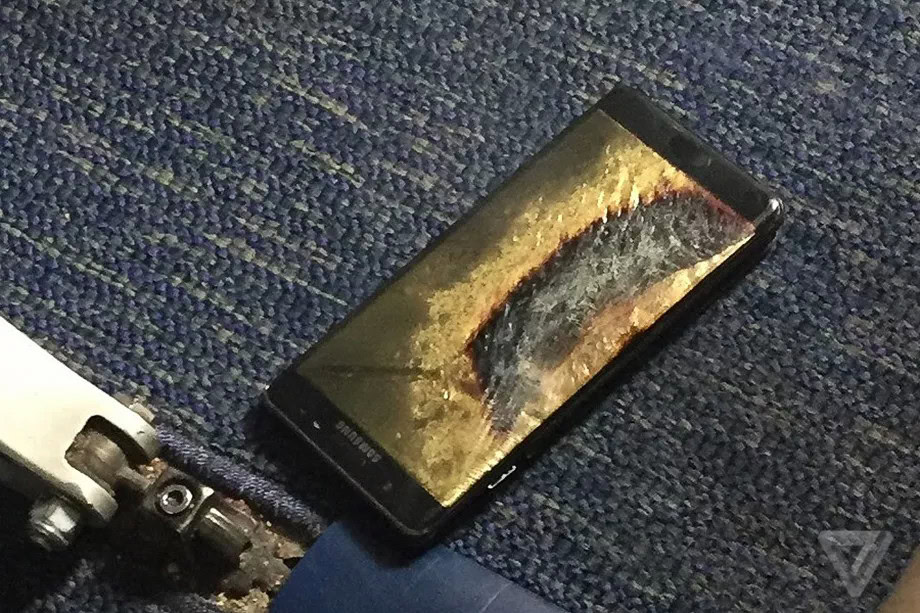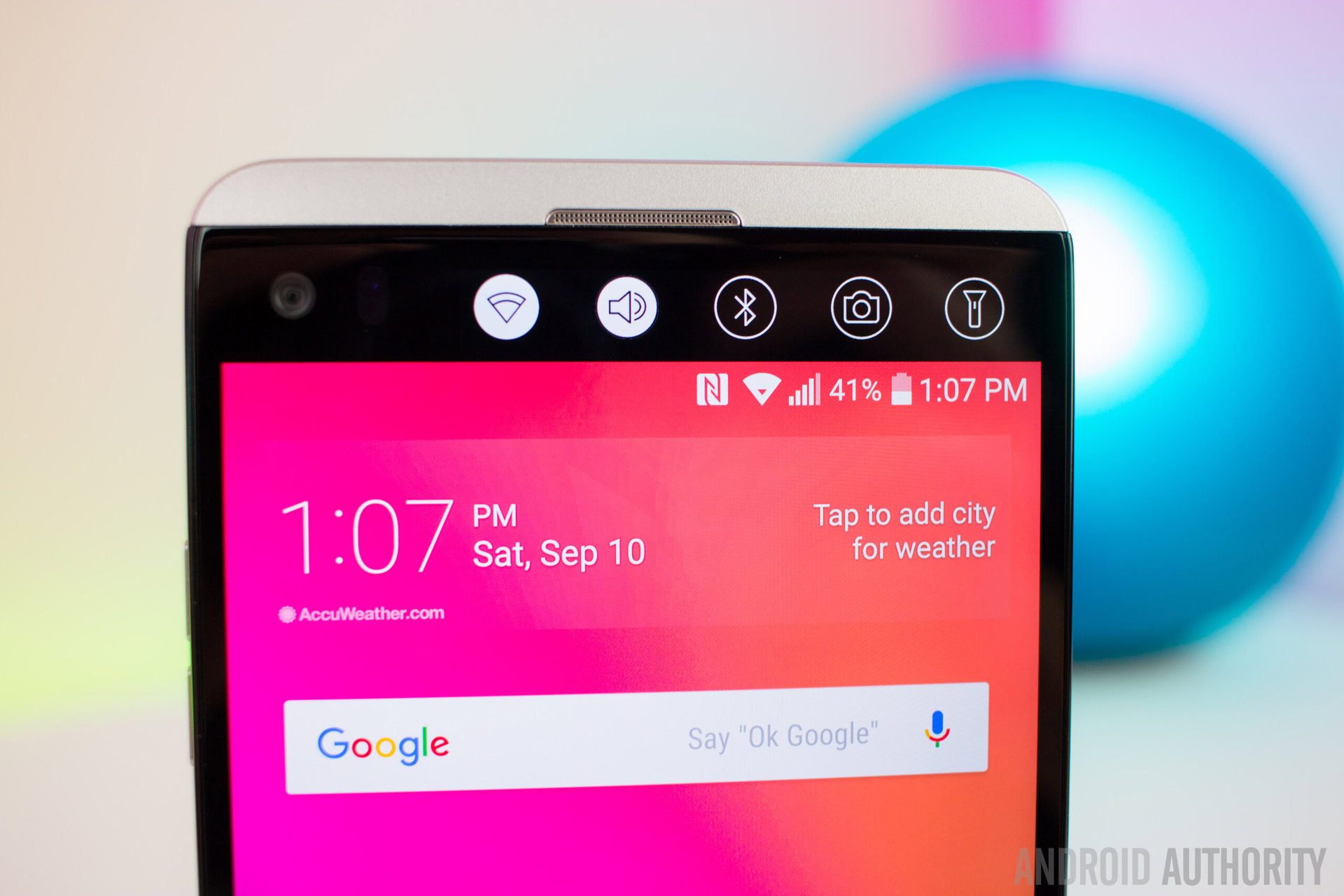Affiliate links on Android Authority may earn us a commission. Learn more.
The silver lining to the Galaxy Note 7 fiasco
October 10, 2016

While it’s hard not to feel bad for Samsung regarding the whole exploding Note 7 situation, the whole event may just have a positive impact in the long run. Samsung Mobile will recover, rest assured of that, and consumers will continue to buy Galaxy devices and Note phones for years to come.

But the case of the immolating Note 7 will serve, at least temporarily, as a catalyzing event for the rest of the smartphone industry. Not only will it necessarily awaken consumers to phones outside the “iPhone and Galaxy” spectrum, it might also set the stage for some of Samsung’s smaller competitors to nibble away a little market share from the established duopoly.
I can only imagine the gleeful hand-wringing that has been going on in (non-Samsung) boardrooms everywhere over the last month. While this whole drama seems catastrophic now, its significance will diminish rapidly. But within the small window of opportunity it has opened, a lot of interesting things could happen.
A tragicomedy of errors
The whole thing really couldn’t have come at a worse time for Samsung. Following hot on the heels of the outstanding Galaxy S7 Edge, the Note 7 looked to be a successful continuation of the company’s reinvention of its product lineup.
Samsung’s handling of the voluntary recall was laudable, but when the first Note 7 to catch fire on a plane turned out to be a supposedly “safe” replacement version, any hopes of righting the good ship Note 7 went up in flames.

More replacement fires followed and as it currently stands, very few people will want to buy a Note 7 if or when the company can finally guarantee they are not likely to spontaneously combust. The damage to the Note 7 brand has, by and large, already been done.
Unfortunately for Samsung, that damage is a little contagious too: I’ve already heard airline announcements instructing passengers that all Samsung phones must be switched off during flight. Now, carriers the world over are ditching the Note 7.
To the regular consumer, the various letters and numbers that come after a smartphone OEM’s name are irrelevant. All most people know is that Samsung smartphones generally are somehow tainted, not one particular model (and those stories of exploding Galaxy S7 Edges certainly aren’t helping that impression). Just as some airline companies are ascribing the Note 7 problem to all Samsung phones, so too will many average consumers.
Why it’s not all bad
The upshot of all this is that suddenly the two horse race of “iPhone vs Galaxy” is blown wide open. There hasn’t been a more boring iPhone in years and the latest Galaxy is now dead in the water.
While this is bad news for Samsung it’s great news for everyone else, manufacturers and consumers alike. Anyone looking at buying a new phone in the second half of 2016 suddenly has to consider a whole bunch of alternatives they otherwise might not have looked at.
So who stands to benefit from Samsung’ misfortunes? LG for starters, who have possibly the second best phone around right now in the LG V20 (not to mention LG Chem, who might pick up some of Samsung’s battery customers). Then there’s HTC, whose HTC 10 is still among the best phones no one is buying, Sony’s new-look Xperia X range, HUAWEI’s upcoming Mate 9 and other existing options from Motorola, Xiaomi and ASUS are all possibilities too.

But even among that crop of contenders there are issues. The V20 doesn’t have a global release, the Mate 9 still has that “suspicious Chinese origin” prejudice to contend with, Sony isn’t focusing on the U.S. so much these days and the HTC10 is a little long in the tooth to count as a late-2016 option for many.
Perhaps more than anyone else, the new Google phones are set to benefit from Samsung’s dismal state of affairs (not to mention the unexciting nature of the iPhones 7). In fact, Google couldn’t have asked for a better backdrop against which to launch the Pixel and Pixel XL.
The Pixels are brand new, Google is about as reliable and well known as they come and the two new phones are in the same price bracket as the iPhone 7 and Note 7. Plus they’ve got all that fancy newness about them with Google Assistant, the best smartphone camera ever according to DxOMark, and a bunch of other Pixel-exclusive features.
[related_videos title=”Non-exploding Note 7 videos” align=”center” type=”custom” videos=”720404,716937,715505,715189″]
A silver lining of sorts
While I think this whole situation is far from devastating for Samsung, I wouldn’t be surprised to see an ever-so-slight shift in market share figures in the next couple of quarters. As marginal as they may turn out to be, this can only be a good thing. While consumers tend to move on from this type of scandal quite quickly (and the Note 7 is hardly the only phone Samsung sells), a percentage point here and there could mean huge things to smartphone companies in fourth or fifth spot globally.
When consumers get a better grip on what else is on offer, the status quo is challenged and more exciting things follow. Samsung will naturally want to step things up with the Galaxy S8 in order to recover from the losses the Note 7 incurred and battery testing everywhere will come under intense scrutiny to avoid any similar fiascos. Meanwhile, other companies will be bringing their A-game in order to capitalize on Samsung’s misfortunes.
When a company like Samsung has to strive to do better it benefits everyone. When you’re so far ahead of the game it’s easy to get lazy and rest on one’s laurels (something I already accused Samsung of starting to do with the Note 7). But when you’re a little further down the market ladder, opportunities like this don’t come along very often.
The Note 7 situation may not change anyone’s opinions in the core Android camp, but casual consumers might finally start to realize there are alternatives beyond just Samsung and Apple.

The Note 7 will gradually become a blip on the Samsung radar as time goes by and people will forget (just as they did with the various battery fires that plagued the Galaxy S4). If and when the Note 7 sees a widespread release free of all the battery concerns, there will still be people willing to buy it. It is, barring any explosions, still the best Android phone you can buy. Or at least, will be able to buy again once this all blows over.
But in the meantime, take the opportunity to consider other manufacturers for a change. If you’ve been tempted by the OnePlus 3, Xiaomi Mi 5 or Moto Z Force, then why not take a temporary Samsung holiday and give another manufacturer a trial run? Or at least head into your local carrier store for a spot of window shopping. You might just be surprised by how good other Android phones are these days.
How serious do you think the Note 7 situation is for Samsung? What phone would you buy if not a Samsung?